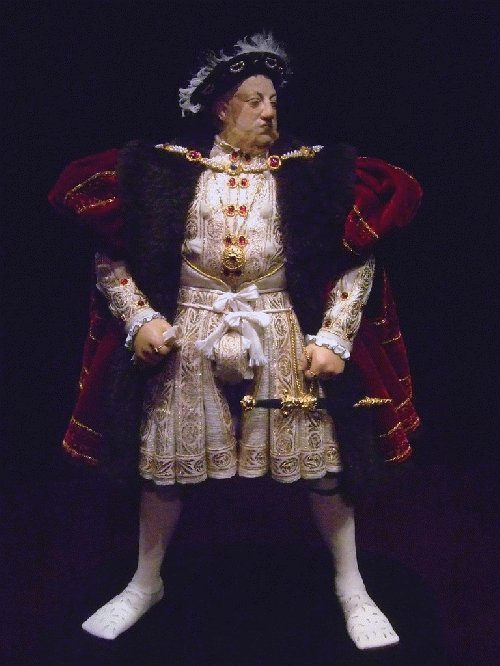
King Henry VIII historical portrait sculpture by artist-historian George Stuart (5)
(Image by mharrsch from flickr) Details DMCA
Reprinted from hartmannreport.com
I'm proposing Congress change the rules of how the Court operates around decisions in which they invoke the Constitution to change or strike down laws
America was never intended to have kings or queens, unaccountable to the people, ruling for life. But that's what we have, because Congress and the White House never seriously pushed back against a power grab executed by the Supreme Court itself.
It's time to reduce the Court's power in a way that agrees with the Constitution. We'll almost certainly have to wait until the next time Democrats control the House, Senate, and White House, but that could happen in another 20 months, so we need to start planning now.
I'm proposing Congress change the rules of how the Court operates around decisions in which they invoke the Constitution to change or strike down laws. Instead of operating along partisan majority lines, I'm suggesting they must have an absolute consensus -- a unanimous decision -- on any decisions involving the US Constitution.
The Supreme Courts of Belgium, France, and Italy work this way by law and those of Germany and Spain do so by tradition. It has served those nations well, stripping politics and partisanship out of their judicial systems.
Even Alexander Hamilton and James Madison knew how toxic an out-of-control Supreme Court could be. We need to put some guard rails around the Court's ability to act politically, and this would be a great place to start.
Nowhere in the Constitution does it say decisions must be issued exclusively by majority opinion; it does, however, say in Article III, Section 2 that Congress has the power to "regulate" the Supreme Court.
I'm proposing a regulation that would require a majority for non-constitutional questions and an absolute consensus for all decisions involving any interpretation of the Constitution. There's plenty of fascinating history that supports this argument.
From the founding of our republic in 1789 until 1803, the Supreme Court was only the final court of appeals in normal civil and criminal cases. After all, the buck had to stop somewhere.
"But what about the Court deciding the Constitution says we can own guns or can't get an abortion?" you may ask.
The simple fact is that there's no explicit reference in the Constitution about the Court deciding what the Constitution says, and there was only little discussion of it during the Constitutional Convention of 1787.
Nonetheless, in 1803 the Supreme Court decided that it, and it alone, could instantly overthrow, edit, or even rewrite laws passed by Congress and signed by the president. All based on its own unique interpretation of the plain language of the constitution.
This was not what most of the Founders and Framers intended.
In 1788, when James Madison and Alexander Hamilton published a long series of newspaper articles promoting to the American people the idea that they should ratify the Constitution (today we call them The Federalist Papers), Hamilton took on the job of selling Article III, which created the court system, including the Supreme Court.
Next Page 1 | 2 | 3 | 4 | 5 | 6
(Note: You can view every article as one long page if you sign up as an Advocate Member, or higher).





